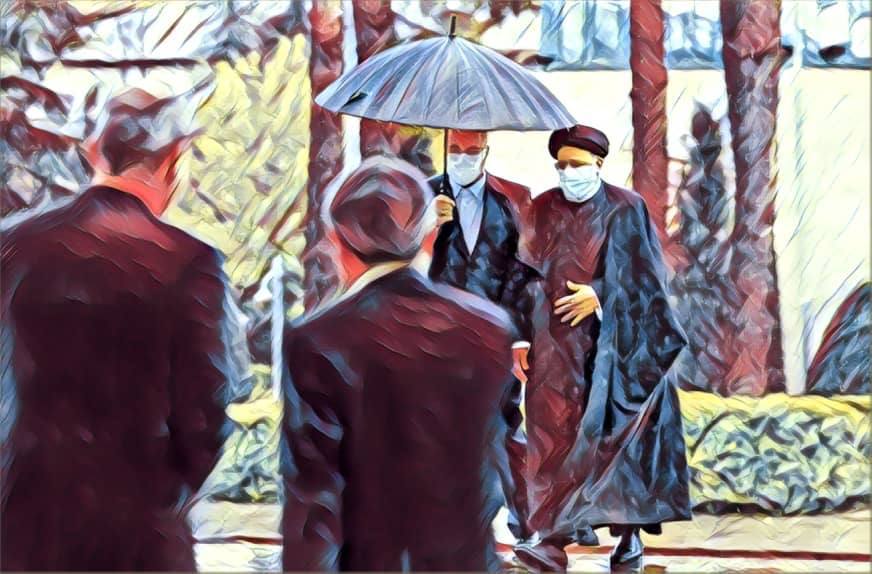The Conflict Between Raisi and Qalibaf Intensifies
The conflict between Raisi and Qalibaf intensifies. According to Iran Gate, the disagreements that have formed between the government and parliament have reached a point where it seems necessary to prepare for a full-scale political war between the executive and legislative branches before the parliamentary elections in March 2024. As we approach the election season, we are witnessing increasing disputes between hardline and moderate conservatives, disagreements that have roots in the summer of 2022 and have now entered a new phase.
To better understand the political landscape of the country, which is currently dominated by conservatives and the Stability Front, it is necessary to look back at the 2020 elections and monitor the activities of key figures in this movement. Of course, we should not overlook the impact of statements made by Ayatollah Seyyed Ali Khamenei, the Supreme Leader of the Islamic Republic. This report delves into the roots of these disagreements and analyzes recent developments.
Who is the Super-Revolutionary?
In June 2022, during a meeting with revolutionary members of parliament, Ayatollah Khamenei, the Supreme Leader of the Islamic Republic, for the first time used the term ‘super-revolutionary’ to describe some of the hardline figures in the parliament. In this speech, he described the eleventh parliament as the best and most revolutionary parliament since the Islamic Revolution of 1979, but he condemned the behavior of the super-revolutionaries. In essence, from between the lines of this speech, it can be inferred that ‘super-revolutionary’ is a term for ultra-hardline revolutionary figures, mostly affiliated with the Stability Front.
After this important and unusual meeting, some moderate conservative figures dared to take a stance against active figures of the Stability Front and criticized them. In fact, June of the previous year marked the beginning of the conflicts between Qalibaf and Raisi, which are intensifying day by day. The keyword ‘super-revolutionary’ caused the hardline faction, which has a significant presence in Ebrahim Raisi’s government, to adopt harsh positions against the faction close to Qalibaf and pragmatic conservatives.
Sismoni-Gate and Dispensing with Formalities
After the Supreme Leader of the Islamic Republic gave the green light to attack the super-revolutionaries, conservatives turned their artillery towards members of the Stability Front, and the Sismoni-Gate case reached its peak. Mohammad Bagher Qalibaf, who was the target of this case, finally could not withstand it and in the fall of 2022 made harsh statements against the super-revolutionaries, accusing them of inaction. In these remarks, he described the super-revolutionaries as people who, until recently, were unknown and now claim to be revolutionaries, directing sharp and biting criticisms towards members of the Stability Front in parliament.
In these remarks, Qalibaf stated that we are not supposed to be lazy, open our mouths, and speak unpreparedly, calling ourselves revolutionary. As the Leader said, we look at some of the super-revolutionaries, and no matter how much we observe, they have done nothing, yet they are demanding from everyone. In other statements made shortly thereafter, he also said that the revolution does not progress with empty, harsh words and meddling.
However, this verbal conflict was not limited to parliament and escalated to disputes between the government and parliament, to the point that the impeachment of Seyyed Reza Fatemi Amin, which had previously been stalled by the parliamentary presidium, was brought to the public session with Qalibaf’s green light, making the Minister of Industry, Mines, and Trade the first victim of Raisi in the slaughterhouse of parliament under the leadership of Mohammad Bagher Qalibaf.
Conservatives and the 2024 Election Crisis
These disagreements have continued to this day, reaching the most intense state possible. On the other hand, there is no prospect of these disagreements and tensions subsiding. Given the statements made by Sadegh Mahsouli, the Secretary-General of the Stability Front, it seems that September 2023, like June 2022, will be recognized as a critical point. This is because, following this official declaration of war by the Stability Front against moderate and pragmatic conservative figures, we are witnessing complex maneuvers from both sides.
However, it seems that the 2024 elections can only be a cold splash on the fractured body of the conservative movement, a body that was expected to become more unified than ever with the coming to power of Ebrahim Raisi’s government. However, developments have unfolded in such a way that currently, unprecedented internal disagreements among conservatives have become apparent, and it may even lead to serious splits.
However, experts and analysts believe that after the elections, we will witness a temporary calm, but after a short period and before the new representatives settle in parliament, the conflicts will flare up again. These conflicts, considering the probable maximum exclusion of super-revolutionaries, will be more intense and controversial than what we are witnessing these days.
English
View this article in English

